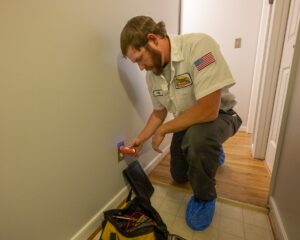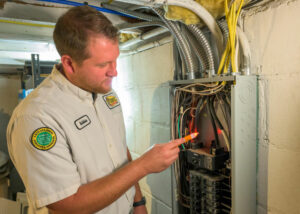
Lightning strikes are one of those things most people don’t think about until it actually happens. And when it does? It’s a mix of shock (literally and figuratively), scrambling for answers, and wondering if there’s some obscure legal requirement you missed. For landlords, the question often comes down to: Am I legally obligated to have a lightning strike evaluation done?
There’s No Universal “Yes” — But It’s Not That Simple
Here’s the short answer: in most places, there’s no blanket federal law that says landlords must arrange a lightning strike evaluation after a storm. But that doesn’t mean you’re off the hook entirely. Local building codes, state property laws, and even your insurance company’s policy language might tell a different story.
I’ve seen situations where a city inspector, after a big storm, required certain rental buildings to get an electrical inspection before tenants could return. It wasn’t technically about “lightning strike evaluation” — but if lightning was involved, the evaluation was effectively mandatory.
The Insurance Connection
Even if local laws don’t explicitly require it, insurance companies often do. Many landlord policies include language about “prompt damage assessment” after a major event. Lightning? Definitely qualifies.
If you fail to have an evaluation and later find damage — say, fried wiring or a hidden roof leak — your claim could get denied. And yes, I’ve heard of landlords getting burned by this. Literally one client of mine had a surge run through their property’s electrical system, and months later, the HVAC failed. The insurance adjuster asked for proof of a post-lightning evaluation. They didn’t have it, and… no payout.
Tenant Safety Obligations
Another layer here: most states have habitability laws. That means landlords are legally required to keep the property safe and livable. If a lightning strike damages electrical wiring or starts a slow-burning fire inside the walls, you might not see it right away — but your tenants could be at risk.
Failing to get an evaluation could be seen as neglecting that responsibility. And in legal disputes, judges tend to side with tenant safety over “I didn’t think I had to” arguments.
Why It’s Just Smart Business
Legal or not, doing a lightning strike evaluation is one of those things that can save you headaches, money, and even lawsuits down the road. Electrical issues from lightning can show up weeks or months later. Appliances might work fine today, then fail spectacularly when the weather changes or load increases.
For landlords, there’s also the trust factor. Tenants notice when you take their safety seriously. Sending an electrician or inspector after a strike sends a clear message: “I care about this place — and about you.”
The Cost Factor
I know what you’re thinking. Evaluations cost money, and if lightning strikes are rare in your area, it can feel like overkill. But compared to the potential cost of rewiring an entire building or losing a lawsuit over negligence? It’s small change.
Some landlords roll the cost into their annual maintenance budget, especially in storm-prone areas. Others negotiate with electricians for reduced “emergency inspection” rates as part of a service contract.
When It’s Absolutely Non-Negotiable
While there’s no single law that applies everywhere, there are situations where skipping an evaluation is just asking for trouble:
- Visible damage — char marks, damaged siding, or roof impact.
- Electrical malfunctions — breakers tripping, lights flickering.
- Insurance claims — if you plan to file, get the inspection first.
- Tenant reports — if tenants say they heard/ saw lightning hit, don’t brush it off.
In these cases, landlords who skip the evaluation aren’t just risking money — they’re risking lives.
Final Thoughts
Are landlords technically required to have lightning strike evaluations? Not always. But between insurance fine print, safety laws, and the sheer unpredictability of lightning damage, it’s rarely worth skipping.
Think of it this way: a quick check now can prevent a much bigger — and more expensive — problem later. And if it also keeps your tenants safe and your property protected, well, that’s just good business.
